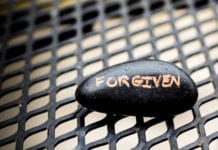by Steve Cordle
It’s been said that every family is dysfunctional, the only differences are in manner and degree.
The same could be said of groups – none are perfect because they are all made up of human beings, who are notoriously dysfunctional by nature.
However, that doesn’t mean we should not try to eliminate problems in our groups to the extent we are able. Intercepting dysfunction behavior will allow God to work more freely in the lives of the group members.
One of the more corrosive group problems is a member (or leader) who feels compelled to reform others in the group. The Reformer can be detected in a number of ways:
1. Advice Giving
hen group members bring up problems they are wrestling with, the Reformer steps in with “What you should do is…” You rarely hear someone respond with a sincere “thank you” to a directive like this from another member. In fact, giving advice usually creates barriers between members. If the member takes the advice and things go poorly, they will blame the Reformer. If they don’t take the advice, then they don’t feel they can’t talk anymore about the issue with the Reformer. Either way it’s a barrier to community.
2. Correction
Otherwise known as trying to be Holy Spirit in someone else’s life. When members share a belief or an action in their lives that deviates from what the Reformer believes to be biblical, the Reformer is quick to offer a Bible verse. Of course, that verse is rarely “Why do you look at the speck of sawdust in your brother’s eye and pay no attention to the plank in your own eye?” (Mathew 7:3)
Needless to say, group members’ transparency shuts down if they feel judged by other members. Without authentic relationships, a group will be dull, lifeless and devoid of God’s power. It is important that leaders be taught to protect their groups from the impact of a Reformer. We cannot do the Holy Spirit’s job for him.










